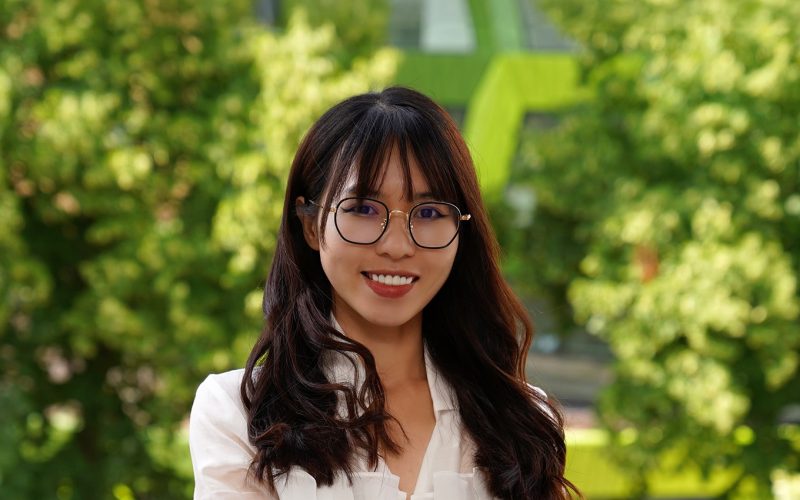For Vivian Nguyen, starting her PhD in Utrecht wasn’t easy: just after she arrived in Utrecht from Vietnam, the Covid pandemic began and she had to adapt her plans. But she showed extraordinary resilience and has defended her dissertation on the development of animal-free research models on October 21st.
Research has always required a significant amount of laboratory animals, and there are many projects and researchers dedicated to finding alternatives. But this is challenging; alternative models have to be developed and validated before they can replace animals. Vivian Nguyen spent her PhD working on a combined kidney-liver model, and she successfully proved its validity.
The technology she worked on was an organ-on-a-chip model or OOC. An OOC is a small device with little chambers that can hold cells from different organs, and the chambers are connected so that culture medium can circulate between the organ models. Because it allows organs to interact with each other, it mimics our own bodies.
Vivian worked specifically on a model for acute kidney injury. ‘We chose this approach when Covid made my original research plan impossible,’ she begins. ‘But it worked out well. After three years of trying, we were able to create an organ-on-a-chip model with cultivated kidney and liver tissue.’
The benefit of OOC models is that they also allow testing of treatments. When the OOC was working Vivian tested therapeutics for kidney injury as well. ‘We provided the model with extracellular vesicles from stem cells, because we know they have regenerative capacity. The liver in the model could have an effect on the therapy efficiency, and we could see the vesicles travel to the kidney tissue and have a healing effect. So, we proved that we could mimic systemic effects with human tissue in a model.’
Even though the start of her PhD was rough due to the pandemic, Vivian looks back on a good time. ‘The Netherlands is very chill,’ she says, ‘everyone is efficient and good at prioritizing, so there is a good work-life balance. The only bad thing is the weather.’
‘I’m grateful to the people at Regenerative Medicine Utrecht for being so supportive and professional,’ Vivian continues. ‘I’ll never forget that during the pandemic, when I was without family and quite alone, my supervisor Marianne made time to talk to me every week, even though she’s very busy.’
Vivian Nguyen now works in Berlin at the Technical University, where she pursues a career in valorization of science.
